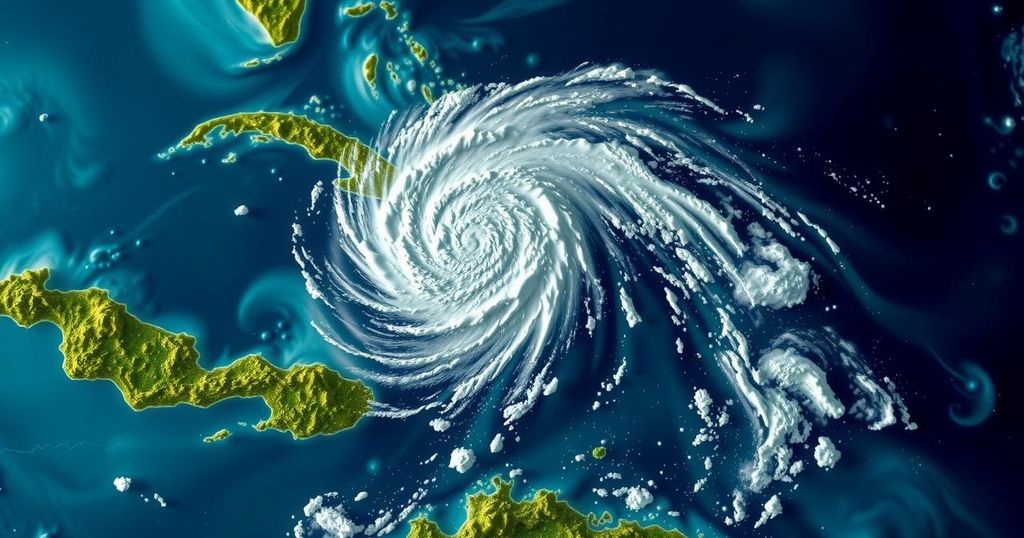Tropical Storm Sara Threatens Honduras Amid Record Hurricane Season
Tropical Storm Sara formed in the Western Caribbean, threatening northeastern Honduras with significant rainfall and flooding. This season has reached hyperactive levels, with 18 named storms thus far. Sara is expected to move northwest into the Yucatan Peninsula and potentially bring heavy rains to parts of Florida. The ongoing impacts of severe storms highlight the vulnerability of Honduras, which has not fully recovered from previous catastrophic hurricanes.
On November 14, 2024, Tropical Depression 19 emerged in the Western Caribbean, escalating to Tropical Storm Sara within hours. This season has recorded 18 named storms, surpassing the average, and establishing 2024 as a hyperactive hurricane season. As of the latest update, Sara poses a significant threat to northeastern Honduras, predicted to deliver rainfalls of 10 to 20 inches, exacerbating risks of catastrophic flooding. Despite potential interactions with land, the atmospheric conditions may allow Sara to maintain its intensity. Historically, such phenomena have resulted in devastating impacts on Honduras, highlighted by past storms like Hurricane Mitch, which caused extensive damage and loss of life. Reports indicate that the economic ramifications from storms Eta and Iota precipitated substantial migration spikes, emphasizing the long-term effects of climate-induced disasters. Forecasts indicate that Sara is expected to shift northwest post-landfall, impacting the Yucatan Peninsula before likely entering the Gulf of Mexico, emerging as a weak tropical cyclone. Preliminary data suggests that it may bring heavier rains to portions of Florida, with potential impacts lessening as it travels over cooler waters and drier air. Notably, the storm is a reminder of the recurring threats faced by Central America, particularly Honduras, which continues to grapple with the consequences of past hurricanes. In light of the continued dangers presented by these storms and their historical context, there is a pressing need for enhanced preparedness and infrastructural resilience in Honduras and neighboring regions, as they remain vulnerable to future climatic events that could lead to significant humanitarian crises.
The formation of Tropical Storm Sara represents the intensification of the 2024 Atlantic hurricane season, characterized by notable storm activity since late September. The interaction between warm sea temperatures and atmospheric conditions has facilitated the development and progression of these systems. Honduras, experiencing frequent and severe storms in recent decades, is still recovering from the impacts of past hurricanes, specifically Eta and Iota, which left profound socio-economic scars on the nation. As the effects of climate change exacerbate the frequency and severity of tropical cyclones, understanding these patterns becomes increasingly critical for regional disaster management and public safety initiatives.
In conclusion, Tropical Storm Sara exemplifies the challenges faced by Central America during a hyperactive hurricane season. The potential for extreme rainfall and flooding poses immediate threats to Honduras, a country still reeling from the devastation of previous storms. The historical data underscores the necessity for intensified disaster preparedness and climate adaptation strategies as communities confront the ongoing reality of climate change-related events. The international community must remain vigilant and supportive in the face of such challenges to mitigate human and economic losses in vulnerable regions.
Original Source: yaleclimateconnections.org




Post Comment